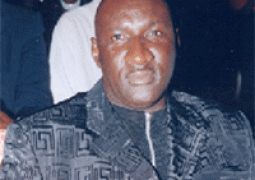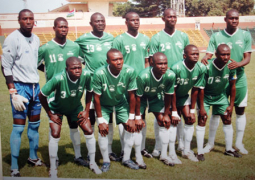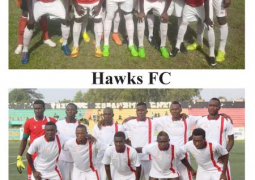The visit of Brazilian Player Agent, Marcello Serasini, in search of football talents is a clear sign of the emergence and successful impact of Gambian football.
The sign is that not only Europe, but also
Mr. Serasini visited the ongoing Summer Camp organised by the Football Coaches Association. After his visit he told West Coast Radio that he was impressed with the development of young players in The Gambia. "This is the way," he said, "that
If Agent Serasini's assurance is something to go by, Gambian families would be well-advised to seize the opportunity to encourage and support their youngsters for the realisation of their full potentials in sports.
It happens that increasingly, sports cannot be divorced from national development; in fact a strong link is being forged daily between the two. A strong connection exists, believe it or not, between sports and health, sports and youth development, and socio-economic development, tourism, and even intangible and unquantifiable benefits like peace, good governance, societal cohesion and unity, international relations and understanding, among other benefits.
One of the more recognised and noticeable impacts, however, is on poverty alleviation which is a critical development area in developing countries. It happens that sports can in fact contribute directly and significantly to the social and economic development of an individual and of a nation, in the area of poverty eradication and poverty alleviation. As is visible to everyone, sports is clearly fast becoming a booming industry even in developing countries, and many national industries and businesses produce enormous incomes and profits from the manufacture of sporting gear, equipment, clothing and footwear. Some businesses in the clothing sector occasionally have difficulty coping with the growing demand. All business activities generate not only corporate income but also create local employment for individuals, develop technical capacity of a nation, promote national self-reliance, and satisfy the chronic demand for sports equipment in developing countries. Sports therefore can contribute to national development in many ways.
Regarding benefits to individuals and their families we do recognise that professional sportsmen and women certainly do not 'live on bread alone'. With their high level of earnings professionals can in fact take very good care not only of themselves but also of their entire families, nuclear as well as extended. This financial capability of professional players can bring social development to individual families, and progressively to the nation as a whole, particularly a nation like ours, which is small and traditionally unified.
Beckham would be too prefect or even outrageous an example with six digit salary of 100,000 Pounds per week not inclusive of royalties, endorsements, advertisement, image rights and other fringe benefits. But we can even think of Gambian players on foreign teams as receiving at least $40,000 per month, some of them. We are talking about 1, 200, 000 Dalasis per month, which after tax can still allow for a sizeable sum in remittances to families at home. Do such levels of remittance not contribute to socio-economic development? We think they represent a significant contribution by all accounts, cost of living included.
Once again, parents are encouraged to take advantage of the benefits of sports. While duly supporting the education of their children, parents should also make allowance for their development through sports. This could be one answer to poverty alleviation and socio-economic progress.
Also the Football Coaches Association are highly commended for organising the Summer Camp and bringing the opportunity to the doorstep of various communities that got involved in the programme. Surely the youngsters will benefit from the expert training offered at this Camp, as well as the exposure to public as well as technical scrutinys. We are all therefore thankful to the Coaches Association for their selfless sacrifice in conducting this useful, instructive and non-profit summer programme.





